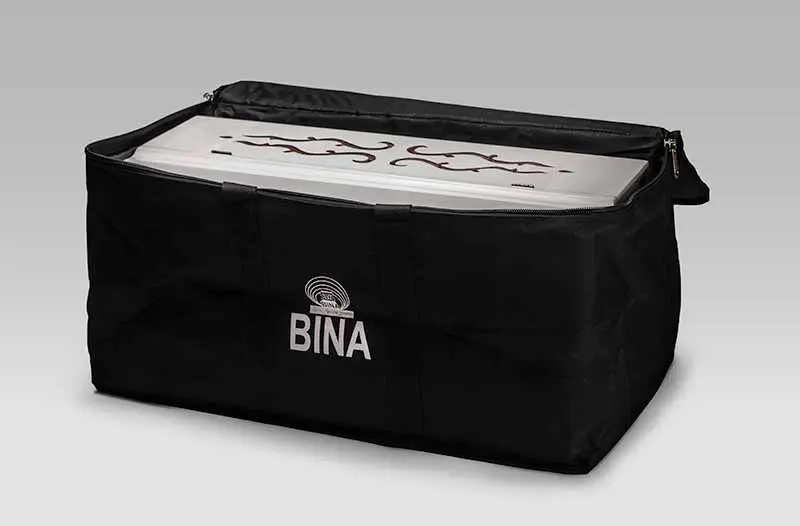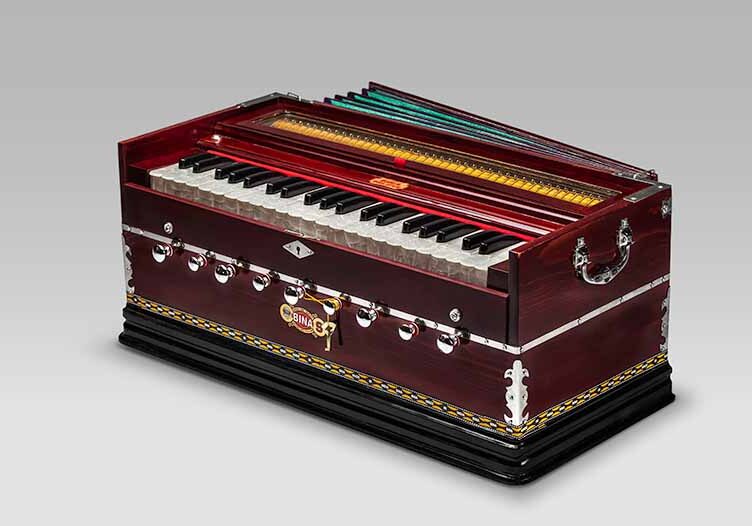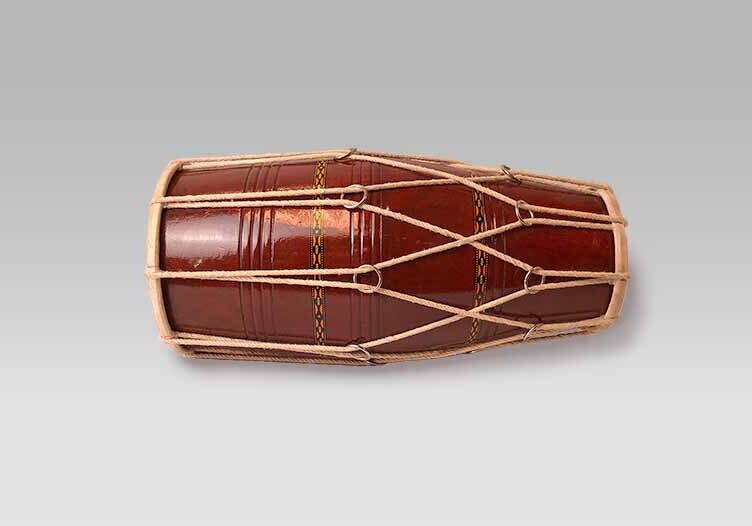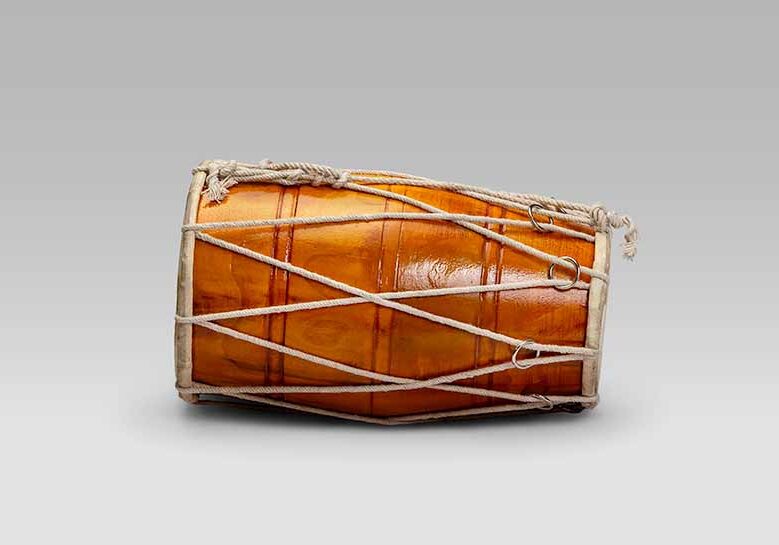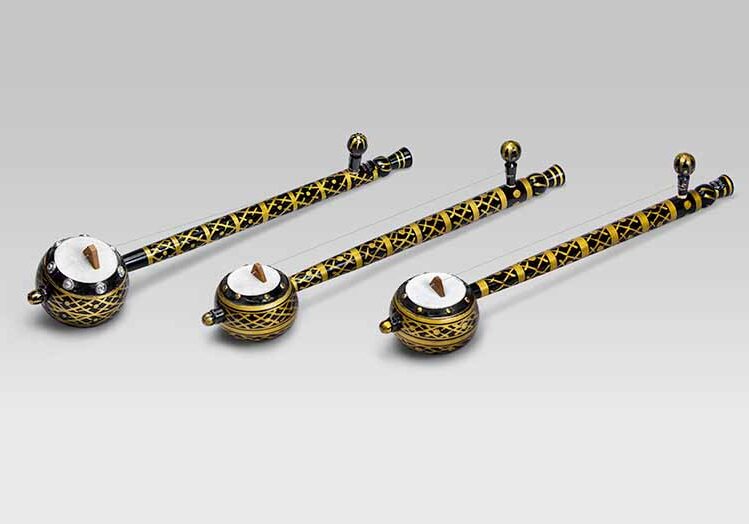The Harmonium
The Harmonium as we know it today started off from the pump organ which is a type of free reed organ that generates sound as air flows past a vibrating piece of thin metal in a frame. It started off in the west but became very popular in the Indian subcontinent during the latter part of the 18th century. Played now in Gurdwaras, Mandirs, for Kirtans, Satsangs and of course Qwalis and Bollywood songs.
Three generations later, we remember that this is where we started. Our Grandfather, his two Harmoniums and his blessings from his Guru…we are privileged beyond anything we can convey that we are able to carry his legacy forward. All musical instruments are hallowed to us. We hear Sarasvati in them all, but the Harmonium is our connection to our roots in this business. To our days running around in our Grandfather’s workshop in Old Delhi, amongst the artisans creating works of art that play the sweetest melodies. When we hear a customer come into our shop and play, we go back to some of the kindest days in our lives and the customer becomes family.
Harmonium Sizes
- 2½ Octave – 30 / 32 keys
- 3¼ Octave – 39 keys
- 3½ Octave – 42 keys
- Scale changer – for 9 scale Harmonium, the keyboard is 3 octaves with the option of shifting the scale 4 notes either up or down. (Note – 11 scales and 13 scales are also available)
Note: All keyboards begin with the note ‘C’.
Operating Instructions
- Remove the cover in a standard harmonium or pull out/up the folded portion in the case of a portable harmonium and lock in place
- Open the bellows (this must only be done on a portable once the lid has been locked in place)
- Pull out the stops as per the required volume or tone desired
- You should only press the keys when blowing air through the bellows (don’t pump air through the bellows without pressing the keys)
- After playing, let out the air from the bellows and reed chambers by pressing down several keys together. Remember to clip the bellows closed and release all the air when finished playing by pressing any of the keys until the sound stops
- Close all the stops
- Replace the cover / fold the harmonium back and lock the lid in place
Care & Maintenance
- Never store the harmonium in a damp place
- Avoid exposure to high temperature and direct sunlight; keep your harmonium in a room temperature environment
- Never insert anything in the holes at the back of the bellows
- Never blow air into the harmonium without having pulled out any stops
- Always remove all air from bellows before closing
- Always cover your harmonium after playing or when it must be stored; minimising dust and debris getting inside
- Never change the coupler position while playing the harmonium
- Do not use lacquer, thinner or similar chemicals for cleaning
- The best maintenance for your harmonium is regular usage
- Lastly, storing for a long-time can result in the tuning going out, sticking keys and damage to the bellows
Types Of Couplers
- Standard coupler option comes in most harmoniums. This type of coupler is a lever fixed to the right of the keyboard and when in the up position is ON (engaged) and when in the down position is OFF (disengaged).
- Scale changer harmoniums have the coupler on the front panel with the stops. It is the stop to the right (left in some) and slightly above the other stops. When pressed the coupler is ON (engaged) and when pulled out it is OFF (disengaged).
Tuning & Function Of Stops
All new harmoniums are normally tuned to around A440 although may sometimes be slightly higher however, this settles within a few good months of playing. In most instances, we can re-tune upon request although this incurs a nominal charge. Please contact us before purchasing should you require any further clarification.
Model Nos.9, 17s, 23B 3½, and Sangeet (9 Stops)
· Male reeds
· Drone
· Bass reeds
· Drone
· Bass reeds
· Drone
· Tremolo
· Drone
· Male reeds
Model Nos.8, 11, and 12 (7 Stops)
· Male reeds
· Drone
· Bass reeds
· Drone
· Bass reeds
· Drone
· Tremolo
Model No.5, 10 and BINA Tarang (5 stops)
· Male reeds
· Bass reeds
· Drone
· Bass reeds
· Tremolo
Model No.23B 2½ Oct. (4 stops)
· Male reeds
· Bass reeds
· Drone
· Drone
Model No.23B 3¼ (6 stops)
· Male reeds
· Drone
· Bass reeds
· Bass reeds
· Tremolo
· Drone

